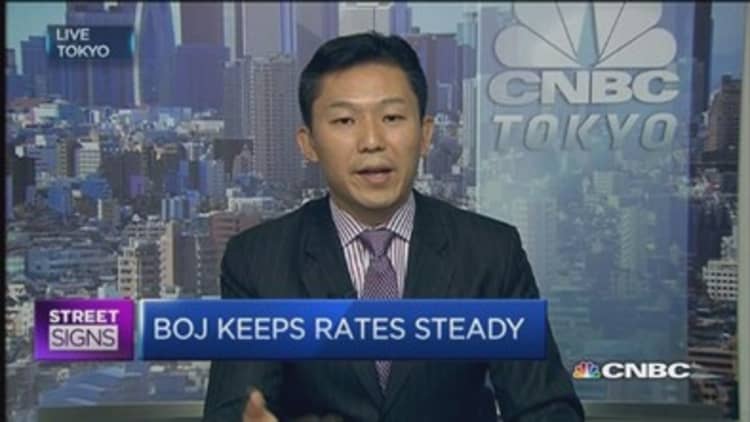
Japan Post is shelling out a nearly 50 percent premium to take over Australian freight player Toll Holdings, spurring concerns the Japanese financial behemoth might be overpaying.
"The offer by Japan Post, inclusive of a control premium, is materially ahead of what we believe is fair value for Toll and its prospects," Anthony Moulder, a transportation analyst at Citigroup, said in a note Wednesday. He recommended shareholders accept the offer.
Toll's prospects certainly appear muted. On Tuesday, the Australian company reported its net profit for the July-to-December half-year fell 22 percent from the year earlier period, with its resources-sector customers taking a hit from commodity price weakness. But government-owned Japan Post is still offering 6.5 billion Australian dollars, or around $5.1 billion, to take over the company.
It's a move that may muddle the Japanese giant's plan for privatization via an initial public offering (IPO), something that's been anticipated for as long as a decade.
Read More Australia's Toll Holdings agrees to $5.1 billion takeover by Japan Post
"If you make an acquisition before the IPO, it may complicate [the deal] because it must be reflected in the company's accounts. It means more work," Philippe Espinasse, author of IPO: A Global Guide, said. Although he added that a deal could create buzz around the offering, a tactic that worked well for Alibaba, which had transactions in the lead up to its IPO.
Some are openly skeptical about the merits of the deal and its price. "I personally feel Japan Post is maybe paying too much, but they're under pressure," ahead of the expected IPO, Takuji Okubo, chief economist at Japan Macro Advisors, told CNBC.
"Their bottom line is in the red. They actually need to raise their profit. So buying up a profitable company overseas, mixing them up to make the overall company look better. That's one kind of desperate corporate strategy," he added.
Okubo also questioned whether Japan Post's "risk management infrastructure" is up to the task of evaluating the benefits of the deal.
Read More Goldman sees 'revolutionary' shift in Japan Inc
Certainly, Japan Post is likely in sore need of new business options. With the advent of e-mail and the Internet, its post offices have suffered the same downturn in snail mail as its global counterparts.
Still, Okubo noted that Japan's economic growth will likely remain anemic, meaning its companies must look overseas for long-term prospects. Acquiring Toll will help to beef up that segment of its business, potentially competing with global majors such as UPS and FedEx.
"[Japan Post] is in every part of Japan," including rural areas not well-served by private delivery services, noted Edwin Merner, president at Atlantis Investment Research. "They have a good base to build on," including generally positive sentiment for the post office, Merner said.
But he too is concerned that the deal is out of the company's comfort zone. "People may think they don't know what they're doing," Merner said.
To be sure, some believe even a too-high price may not be a bad deal. "We think [the price is] too high," Ben Collett, head of Asian equities at Sunrise Brokers, said. But he added, "It doesn't look that crazy."
Collett is looking at the Japan government bond (JGB) yield – hovering around 0.40 percent for the benchmark 10-year – and comparing it with Toll's dividend yield. Citigroup estimated that at the pre-offer price, Toll's shares would yield around 4.8 percent this year.
It's not an idle comparison. Japan Post's banking and insurance units have 177 trillion yen ($1.49 trillion) in deposits, with more than half of that in JGBs, making it the second-largest holder of JGBs after the Bank of Japan.
"If you think of it as a currency trade, they're buying income," Collett said. "I presume they are factoring in a significant drop in the yen as well, so their returns will be supercharged."
—By CNBC.Com's Leslie Shaffer; Follow her on Twitter @LeslieShaffer1


